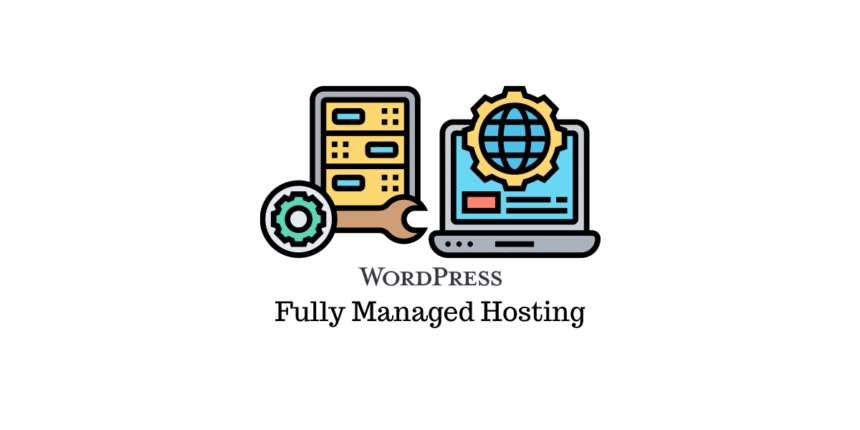Choosing the right hosting solution is one of the most critical decisions developers and technical teams face when launching projects. Whether you’re managing a complex web application, building APIs, or deploying e-commerce platforms, your hosting environment directly impacts performance, scalability, and security.
With so many options available, from shared hosting to dedicated servers, the shift toward managed cloud hosting is clear. It provides flexibility, automation, and peace of mind while reducing the time spent on server maintenance. But with multiple providers and plans, how do developers decide which managed hosting plan fits best?
This guide provides a structured approach to buying managed hosting plans, tailored specifically for developers and technical teams.
1. Understand Your Project Needs
Every project has unique requirements, and those determine the hosting plan you need. Before shortlisting providers, clarify:
- Type of project: Is it a SaaS application, e-commerce product recommendation site, or internal tool?
- Expected traffic: Will it handle thousands of concurrent users or limited traffic?
- Frameworks and tools: Node.js, PHP, Python, or multi-stack?
- Growth plans: Are you scaling in six months or keeping the scope small?
Developers benefit from managed cloud hosting when projects demand uptime, flexibility, and security without daily server management.
2. Evaluate Performance Benchmarks
Performance remains at the core of hosting. Technical teams must consider:
- Server hardware quality: SSD storage, NVMe drives, and the latest CPUs.
- Global data centers: For low-latency deployments across regions.
- Caching and CDNs: Built-in solutions for faster load times.
- Scalability: The ability to add resources (RAM, CPU) with minimal downtime.
Running benchmarks, such as Time to First Byte (TTFB) and response times, can help compare providers objectively.
3. Prioritize Security Features
Security is non-negotiable. Developers should look beyond just SSL certificates and evaluate:
- Firewalls (WAF & network-level)
- DDoS protection
- Regular OS patching and updates
- Intrusion detection and malware scanning
- Role-based access control
A strong managed hosting provider handles these layers automatically, freeing teams to focus on coding.
4. Developer-Friendly Tools and Workflow
One major benefit of managed hosting is developer-centric features that reduce friction. Key elements to check:
- SSH and SFTP access
- Git integration for CI/CD pipelines
- Staging environments for testing before production deployment
- One-click app installations (WordPress, Magento, Laravel, etc.)
- Team collaboration tools with role management
A host that supports modern developer workflows can significantly cut deployment times.
5. Automation and Monitoring
Downtime and errors cost both money and reputation. Look for automation and monitoring features:
- Automated backups with quick restore options
- Performance monitoring dashboards
- Log access and analytics for troubleshooting
- Alert systems for downtime, spikes, or unusual activity
For technical teams, real-time monitoring ensures quick action during incidents.
6. Flexibility in Scaling
Scalability is critical for fast-growing applications. Developers should look for:
- Vertical scaling (upgrading server resources easily)
- Horizontal scaling (adding more servers for distributed apps)
- Pay-as-you-go pricing to avoid overcommitting resources
A provider that supports containerized workloads or Kubernetes integration is a big plus for large teams.
7. Cost Transparency
Budget plays a key role. Developers should assess:
- Transparent pricing models (no hidden charges for bandwidth or traffic)
- Flexible monthly billing vs. long-term contracts
- Add-on costs (SSL, backups, IPs, etc.)
- Value-to-price ratio compared to competitors
💡 Tip: If you’re planning hosting upgrades during sales seasons, it’s worth checking for limited-time offers. For example, Cloudways usually runs Black Friday/Cyber Monday deals. You can currently use the code BFCM5050 to get 50% off for 3 months.
8. Support Quality and Availability
For technical teams, access to knowledgeable support can mean the difference between minutes and hours of downtime. Look for:
- 24/7 support availability
- Multiple channels (live chat, ticketing, phone)
- Specialized developer support with deep technical knowledge
- Community forums and documentation
Good hosting support is proactive, not just reactive.
9. Compliance and Regulations
If your projects handle sensitive data, compliance is crucial. Depending on your industry, you may need hosting that complies with:
- GDPR for European data privacy
- HIPAA for healthcare applications
- PCI DSS for e-commerce transactions
- SOC 2 for enterprise-grade security audits
Always match your provider with your industry’s regulatory needs.
10. Vendor Reliability and Reputation
Before committing, evaluate the provider’s history:
- Uptime guarantee (look for 99.95% or higher SLAs)
- Customer reviews and developer feedback
- Case studies for similar projects
- Partnerships with top cloud providers (AWS, GCP, Azure, DigitalOcean)
Reputation is often the best signal of long-term reliability.
11. Integration with Existing Tools
Technical teams rarely work in isolation. Ensure the hosting integrates smoothly with:
- CI/CD platforms (GitHub Actions, GitLab, Jenkins)
- Container systems (Docker, Kubernetes)
- APM tools (New Relic, Datadog)
- Monitoring and alerting systems (PagerDuty, Slack alerts)
This saves time on workarounds and increases efficiency.
12. Migration and Onboarding Support
Shifting workloads can be complex. Check if the hosting provider offers:
- Free or assisted migrations for websites and apps
- Onboarding sessions to guide new users
- Clear documentation to set up environments
For developers, easy migration means faster adoption with less disruption.
13. Collaboration Features for Teams
If you’re part of a team, collaboration is key. Look for features that support group work:
- Team dashboards with role-specific permissions
- Secure credential sharing
- Project-based access for contractors or temporary staff
- Audit logs to track activity
These ensure security and productivity go hand-in-hand.
14. Long-Term Roadmap and Ecosystem
A hosting plan is not just about today’s features, it’s about the future. Evaluate:
- Roadmap updates shared by the provider
- Partnerships and integrations with leading technologies
- Community growth with meetups, webinars, and open-source contributions
A forward-looking host helps technical teams stay relevant as new technologies evolve.
Final Checklist for Developers
When evaluating a managed hosting plan, developers should confirm:
- High-performance infrastructure with global reach
- Strong security protections (firewalls, SSL, monitoring)
- Developer tools (SSH, Git, staging)
- Automated backups and scaling flexibility
- Transparent pricing with no hidden costs
- 24/7 technical support
- Compliance readiness for sensitive projects
Closing Thoughts
For developers and technical teams, the right managed hosting plan is not just about renting a server, it’s about gaining a reliable partner that streamlines operations, automates routine tasks, and secures digital assets.
By aligning your hosting choice with performance, scalability, and developer workflow needs, you empower your team to focus on building exceptional products instead of worrying about infrastructure.
This buying guide gives you a clear roadmap, compares providers against these criteria, and you’ll find the managed hosting plan that truly fits your technical goals.


